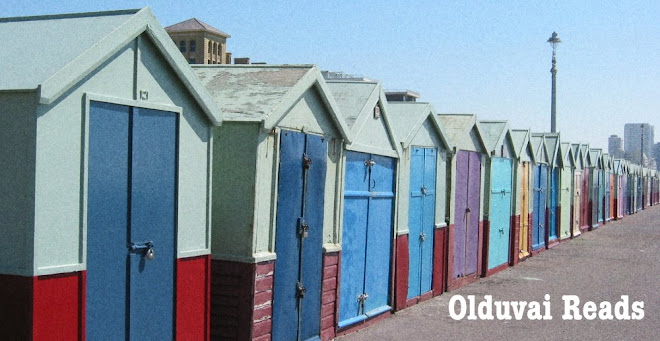Grace Cleave, 30 and unmarried, is a writer living in London, far from her native New Zealand. She is uneasy about leaving her flat, for "journeys were not simple matters for Grace; nothing is simple if your mind is a fetch-and-carry wanderer from sliced perilous outer world to secret safe inner world." So when Phillip Thirkettle, who once interviewed her for a magazine, invites her to stay with his family for the weekend, Grace can't help but worry about it:
"I can't survive the weekend, I can't go among people for three whole days, talking to them, sharing meals with them, having to decide when to join them and when to leave them alone, when to go to bed, when to get up."Grace says little and nothing much happens during her weekend in the north - that is, nothing much happens except in her head, where she takes flights of nostalgia back in time to her childhood in New Zealand, where her father, who worked for the railroad, often moved the family around the country. Frame writes Grace with a frankness, her thoughts constantly in motion, floating around borderless, moving with such fluidity that a conversation with the Thirkettles in the kitchen becomes a reminiscence of her parents sitting around their kitchen in New Zealand. The burden of being a polite weekend guest is almost too much for her, such as when Peter proudly shows his visitor the town's viaduct:
"Yes. M-m-m-m-m, she said, making a stupid noise as if she were eating cake. She cleared her throat, and stared, trying to put an intelligent expression on her face, as if she were 'taking in the effect'."Written in 1963, this posthumously published book is not an easy read. Grace lives an isolated life as an immigrant in London. She has these thoughts of becoming a migratory bird; “it is time for me to fly towards another summer.” It is her unique way of overcoming her feelings of alienation and loneliness. She is also hardly comfortable in her own skin and her interactions with other people, especially the Thirkettles, are awkward, although they sometimes provide some humorous moments. I couldn’t help liking Grace - she is written with such honesty and expresses emotions and weaknesses that many of us experience in real life. She is very real, rather self-deprecating, her emotions raw and out there for us to see. Perhaps that’s what makes it a bit hard to read.
Author Janet Frame, who was diagnosed with schizophrenia which was later discovered – after years in psychiatric hospitals and electric shock treatments – to have been a misdiagnosis, felt that Towards Another Summer was too personal to be published in her lifetime. She wrote it after her own writer’s block and a weekend stay with friends. Towards Another Summer is an exploration of the idea of home, and of belonging. It is lyrical and overflows with emotions. I went into this book knowing nothing about Janet Frame’s life, but when I finished the book, I was intrigued by Frame and her writing, and could not wait to read more of her work, and of her life.
(Originally published on Curled Up With A Good Book)



3 comments:
i've been meaning to read this book, judging from the favourable reviews i've read so far. try frame's "owls do cry" -- i didn't get it! :P
I'm also trying to get my hands on her autobiography. To tell the truth, it's her real life story that interests me!
or you could just watch the Jane Campion movie. heh!
Post a Comment